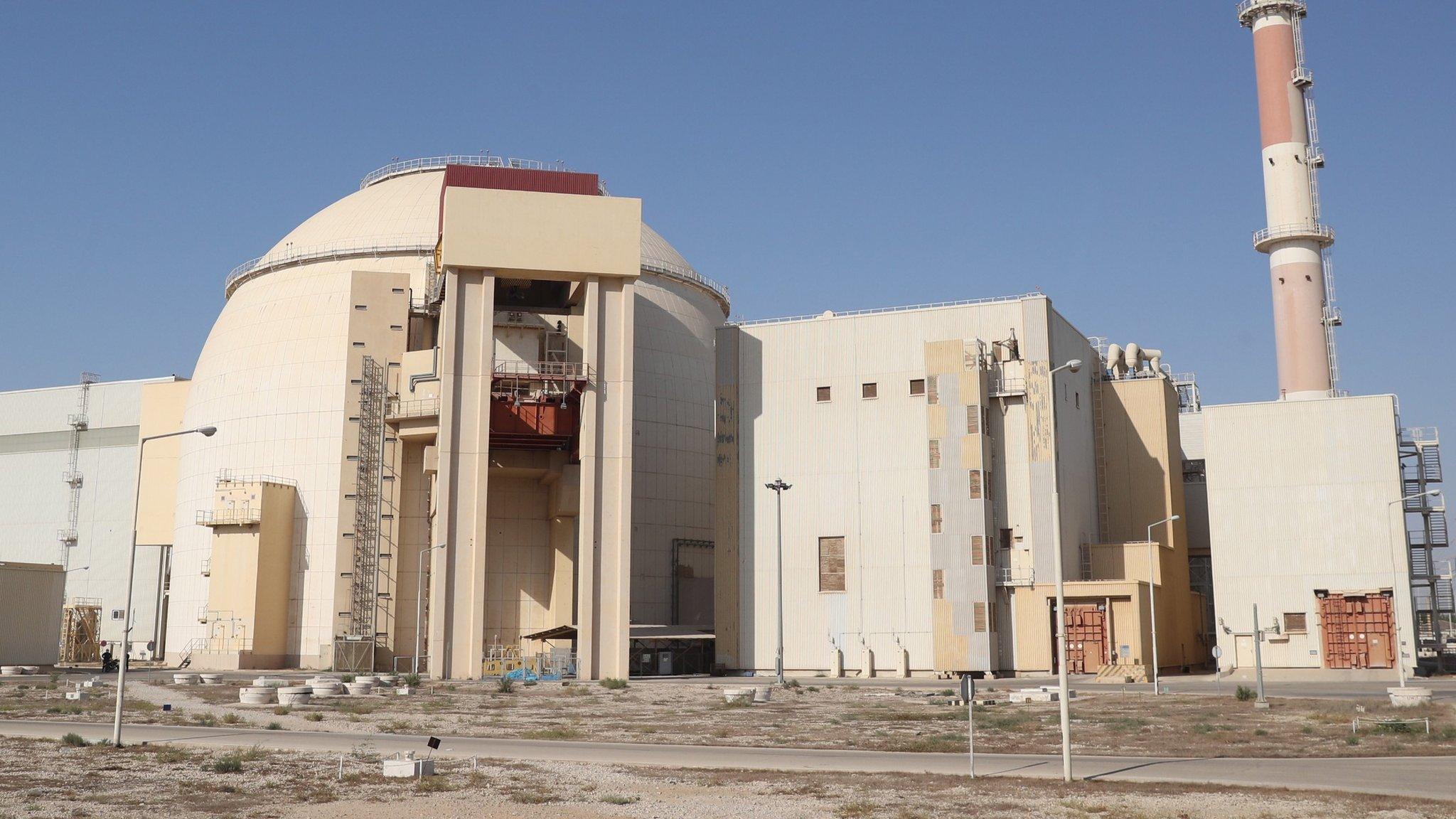US government blocks Iran-affiliated news websites
- Published
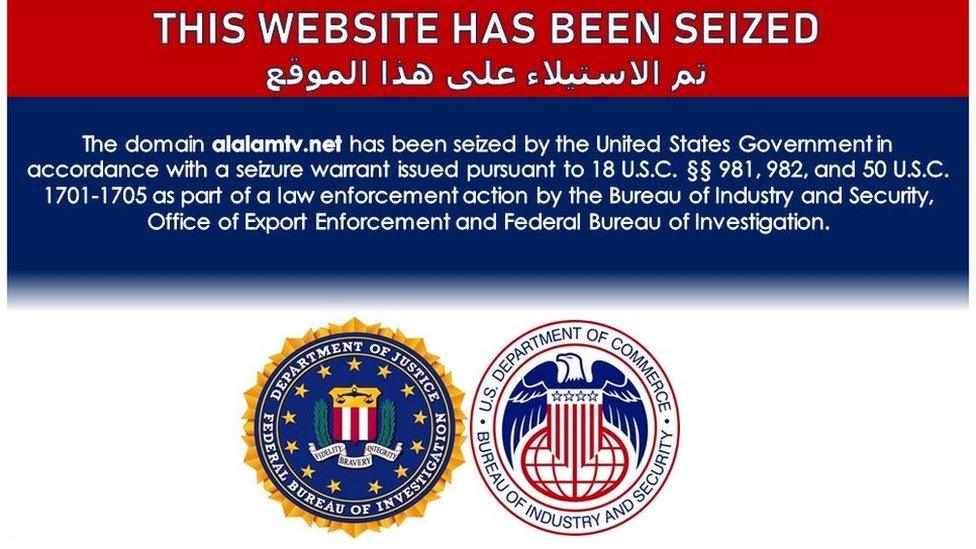
The US has taken down dozens of Iranian and Iran-linked news sites which it accuses of spreading disinformation.
The sites were replaced on Tuesday with notices saying they had been "seized" as part of a law enforcement action. They included Iran's state-run English-language channel, Press TV.
Several were back online within hours with new domain addresses.
Iran criticised the seizures and warned that they were "not constructive" for talks aimed at reviving a nuclear deal.
The US Department of Justice said in a statement, external that it had seized 33 websites used by the Iranian Islamic Radio and Television Union (IRTVU) and another three run by the Iran-backed Kataib Hezbollah militia in Iraq in violation of US sanctions.
The sites had been used by components of the Iranian government "disguised as news organizations or media outlets" to target the US "with disinformation campaigns and malign influence operations", it alleged.
The justice department said IRTVU was subject to sanctions because it was owned or controlled by the Islamic Revolutionary Guard Corps, which the US designated as a foreign terrorist organisation in 2019.
The domains IRTVU was using were owned by a US company and it had not obtained a license from the US Treasury's Office of Foreign Assets Control prior to using them, it added.
Kataib Hezbollah is also a US-designated foreign terrorist organisation.
The websites were not accessible on Tuesday afternoon, with the statement on Al-Alam's website reading: "The domain alalamtv.net has been seized by the United States Government in accordance with a seizure warrant... as part of a law enforcement action by the Bureau of Industry and Security, Office of Export Enforcement and Federal Bureau of Investigation."
Notices also appeared on some of Iran's Press TV websites, the Iranian government's main English-language satellite television channel, and Al Alam, its Arabic-language equivalent.
Allow X content?
This article contains content provided by X. We ask for your permission before anything is loaded, as they may be using cookies and other technologies. You may want to read X’s cookie policy, external and privacy policy, external before accepting. To view this content choose ‘accept and continue’.

State broadcaster Islamic Republic of Iran Broadcasting (IRIB) accused the US of repressing freedom of expression and joining forces with Israel and Saudi Arabia "to block pro-resistance media outlets exposing the crimes of US allies in the region", AFP news agency reported.
Yemen's rebel Houthi movement confirmed that a domain of its news channel, Al-Masirah TV, had been blocked. Iran supports the Houthis - who control much of western Yemen and are battling forces loyal to the internationally-recognised government - but it denies providing them with weapons.
Al-Masirah accused the US of carrying out "an act of piracy... without any justification or even prior notice", external, and said it reserved the right to sue the US government for "this illegal confiscation".
Lualua TV, an Arabic-language Bahraini independent channel that broadcasts from the UK, was also taken down.
Most of the domain names seized were .com, .net and .tv addresses. The .com and .net addresses are generic domains and are not specific to a particular country. The .tv domain is owned by the Pacific nation of Tuvalu but is run by the US firm Verisign.
The seizure of another country's top-level domain - such as Iran's .ir - could potentially be seen as a violation of sovereignty.
"We are using all international and legal means to act accordingly, to condemn this action and to expose to the public this mistaken policy of the United States," the director of the Iranian president's office, Mahmoud Vaezi, told reporters on Wednesday. "It does not appear to be constructive when talks about a deal on the nuclear issue are under way."

How can a website be seized?

When you set up a website, there are two major parts: the servers where the actual content sits, and the domain name that points to it.
In this case, US authorities have seized the domain names. Instead of pointing to the right place on the internet, they now point to scary-looking FBI warnings instead.
They can do this because every "top-level domain", or TLD, is run by a national operator. The .com domain, for example, is operated by the US firm Verisign.
Because it's based on US soil, such firms are subject to US law - and authorities can go directly to them if the sub-company that sold the domain doesn't play ball.
Of course, the original servers are still online somewhere - all that's needed is a new domain name, run by a company outside of US jurisdiction, to point to it.
But the challenge is letting people know what your new address is when they already can't find your website.

The latest move comes days after hard-line anti-Western cleric Ebrahim Raisi was elected president of the Islamic Republic.
The US and Iran have long been foes, but relations have deteriorated since 2018, when then-US President Donald Trump abandoned a nuclear deal between Iran and six world powers and reinstated crippling economic sanctions. Iran retaliated by gradually breaching the agreed limits on its nuclear activities.
Even though current US President Joe Biden wants to rejoin the deal, both sides say the other must return to compliance first.
On Sunday, a sixth round of talks aimed at reviving the deal were held in Vienna between envoys for Iran and the five remaining signatories - China, France, Germany, Russia and the UK. US representatives have been participating indirectly.
Iran election: Wariness and welcome for Ebrahim Raisi
All of Iran's news stations are government run, with no private television or radio stations. Satellite dishes are also illegal - although they are commonly seen. In the past, Iranian police have resorted to using cherry pickers to scour balconies for them, and crushing confiscated satellite dishes with tanks as a show of force.
In October, the US seized 92 websites, external it said were being used by Iran's Islamic Revolution Guard Corps (IRGC) to spread political disinformation.
The Iranian government has made no official comment in response to the move, but media outlets in the country have accused the US of censorship.
"Is this another example of US freedom of the press where if DC doesn't like what u say, ur domain is seized? (sic)," tweeted American-born Press TV host Marzieh Hashemi.
Related topics
- Published8 January 2020
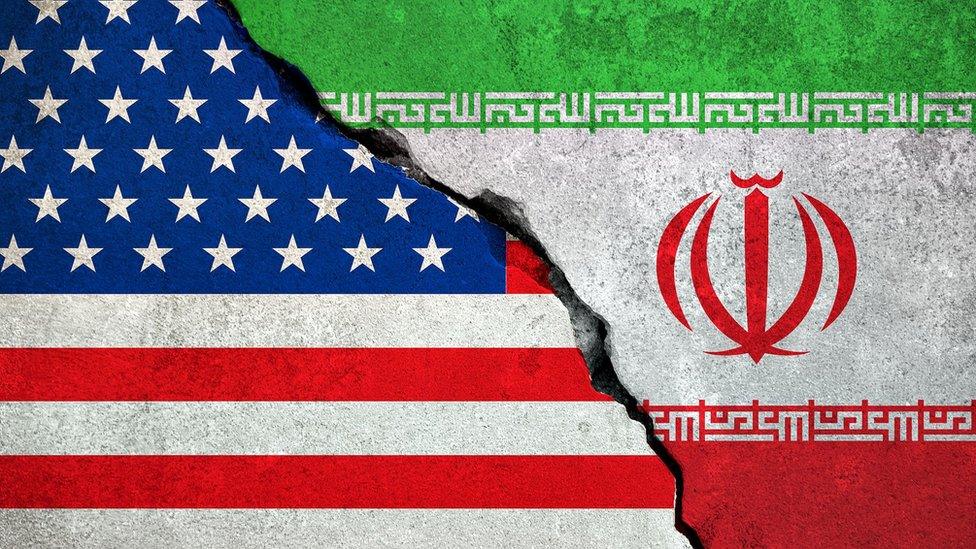
- Published21 June 2021
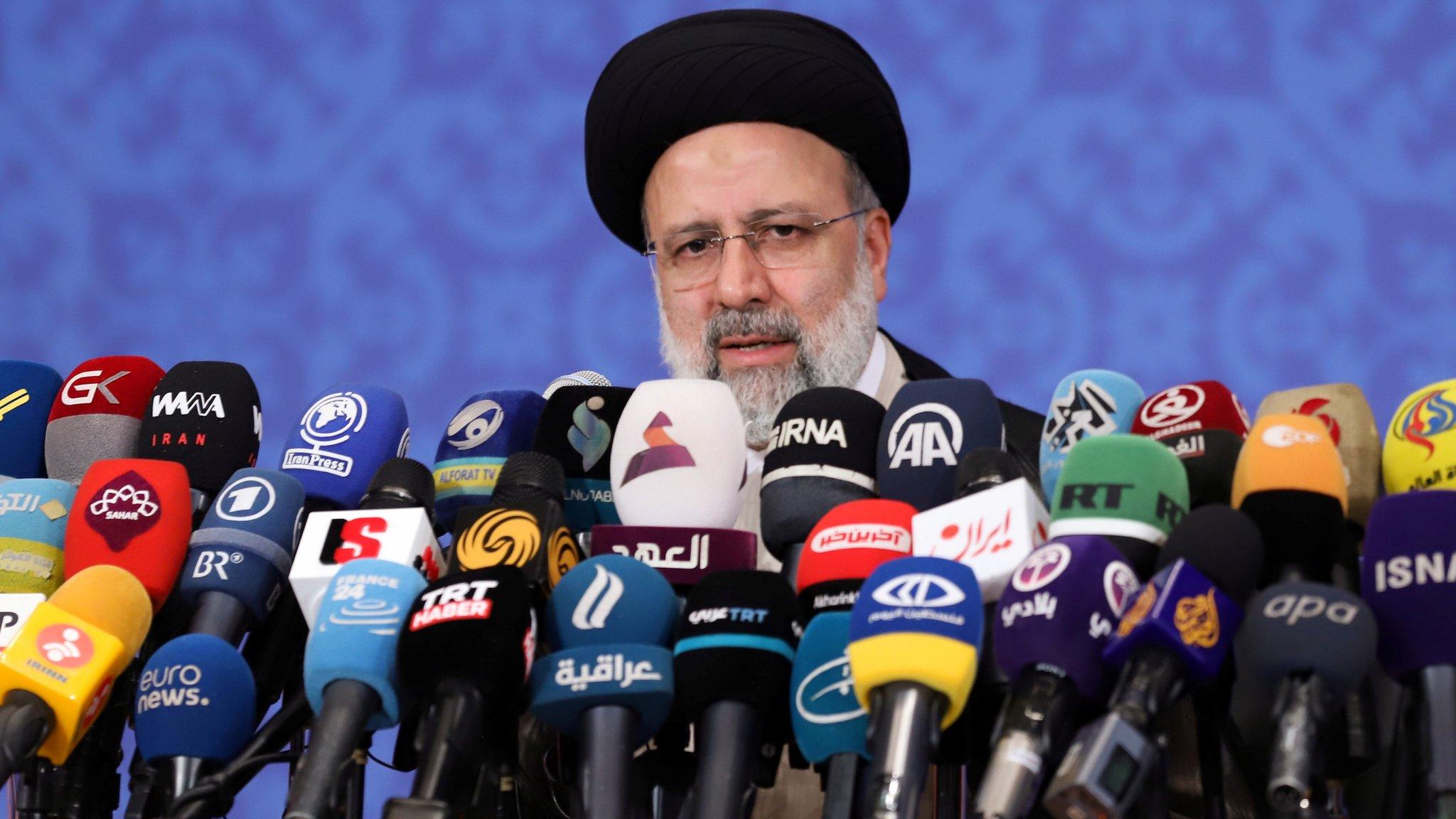
- Published6 April 2021
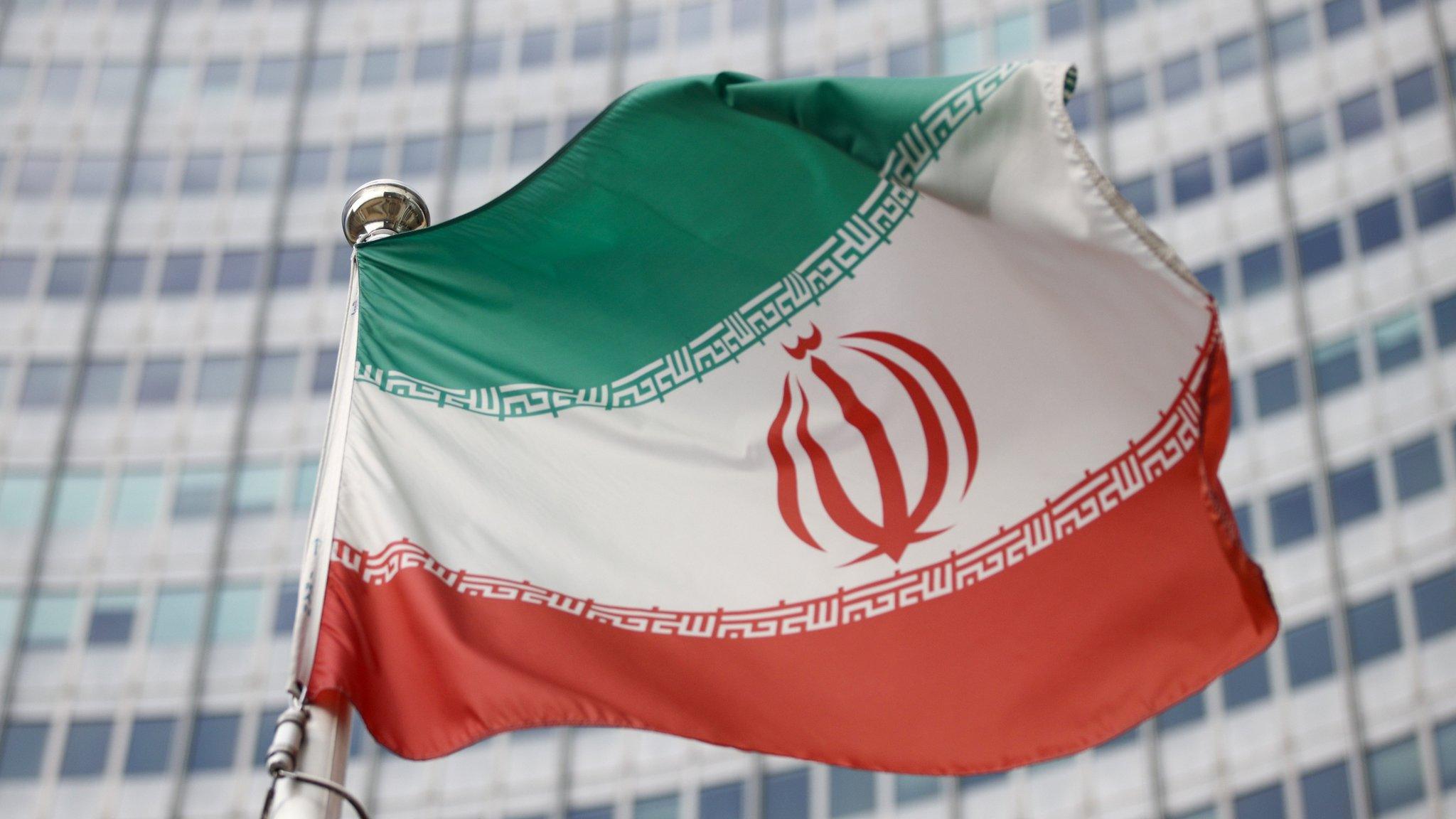
- Published16 November 2021
